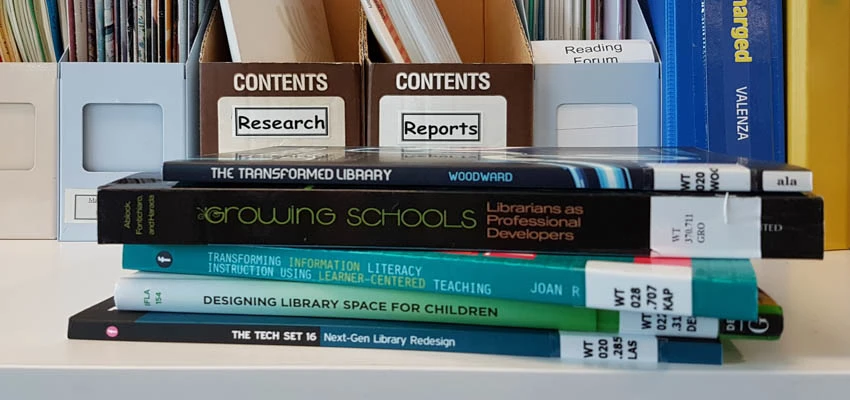Using the framework
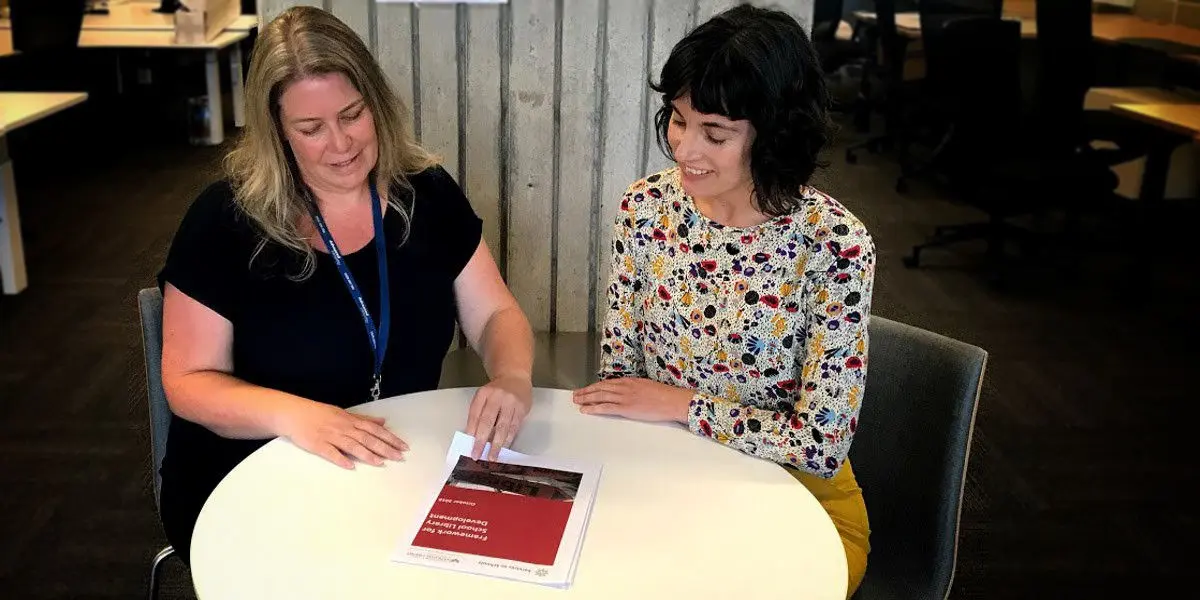
The framework is a resource for anyone involved with planning, evaluating, or supporting the development of your school library.
Use the framework to spark conversations and guide decisions
The framework is not a set of rules about what you should have. Rather, it is intended to spark conversations and reflections about your school library, and guide decisions about how you incorporate the library into the wider teaching and learning environment of your school.
Elements of an effective school library
In an effective school library, student learning and well-being is supported by library services that combine elements of place, collections, connections, and access. You need effective leadership to ensure your library services align with the school’s vision and goals for student learning and well-being, and you need expertise to design and deliver those services for your school community.
These elements interact with each other; there is a synergy between them. Your plans for library development need to consider the impact changes to one aspect of your library will have on each of the others. How you realise each element, and how you combine them, creates an experience that is unique to your school.
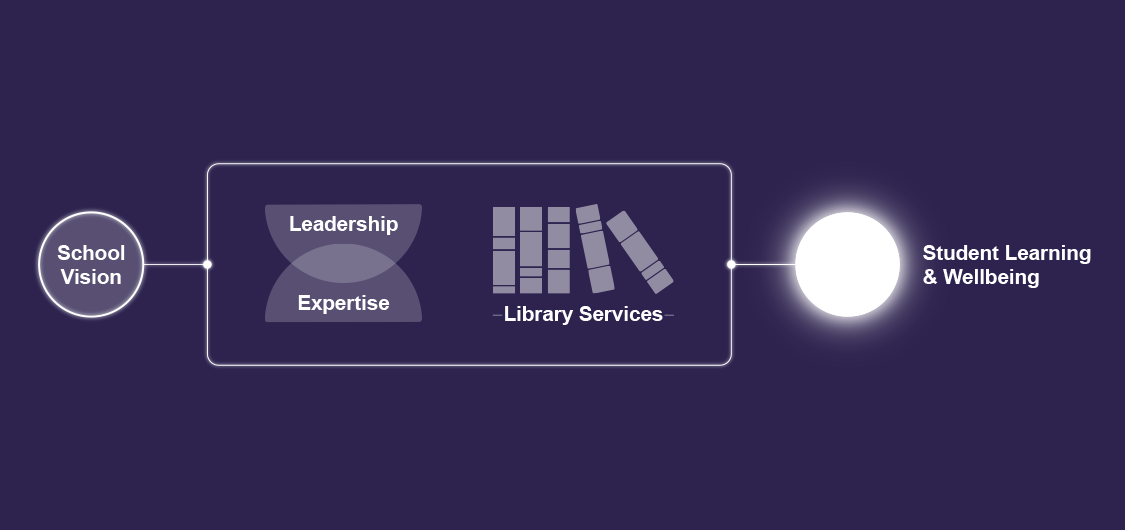
School Library Development Framework — the elements of an effective school library interact with each other.
Developing effective school libraries
School libraries operate within the wider context of a school’s strategic plans, goals and aspirations for its students and the school community. Experience shows us some common features of school library development projects that are most likely to succeed.
The school community understands why the library development is necessary and important
the development involves a broad group of people and perspectives,
stakeholders are involved throughout the process,
communication channels are used effectively for gathering input, and for sharing updates.
All stakeholders involved with the school library development have the information, knowledge, and support they need to do this work.
There is the capacity to make change
adequate funding is available for the library development (e.g. for construction),
other investment is made as required (e.g. developing staff expertise, or allowing adequate time to work through the development process).
The school library development results in sustainable changes in practice
the project enables a new or changed culture within the school,
there is commitment to a process of continual improvement.
Some school library development projects may touch on every element of the framework, for example, building a new library. Or your school might focus on one or more elements as part of a cycle of ongoing improvement. At each stage of your school library development, it’s important to keep your vision and plans in mind – for the school as a whole, and for the library in particular.
Self-assessment tool
Download our self-assessment tool and use it with the School Library Development Framework to help review and develop all or part of your library, as part of a cycle of continuous improvement. Library team members can also use the framework and the self-assessment tool to help identify areas for their own professional learning.
School library development self-assessment tool (pdf, 420KB)
Services to Schools support
Developing a school library can be complex. Services to Schools Capability Facilitators support schools through this process, using this framework as a basis to ensure that:
the school community has a shared vision about the supportive role of the library in meeting their goals and challenges
the school builds their own capacity – including leadership and expertise – to develop their library spaces and services, and successfully implement changes to these
each element is considered separately and as part of a larger whole, with planned development that is flexible and can adapt to your school’s needs.
Services to Schools also offers a variety of professional learning and support for school libraries. Read more about our:
Projects to improve student learning gives experiences of schools, syndicates, or Communities of Learning | Kāhui Ako who have worked with us.
Related content
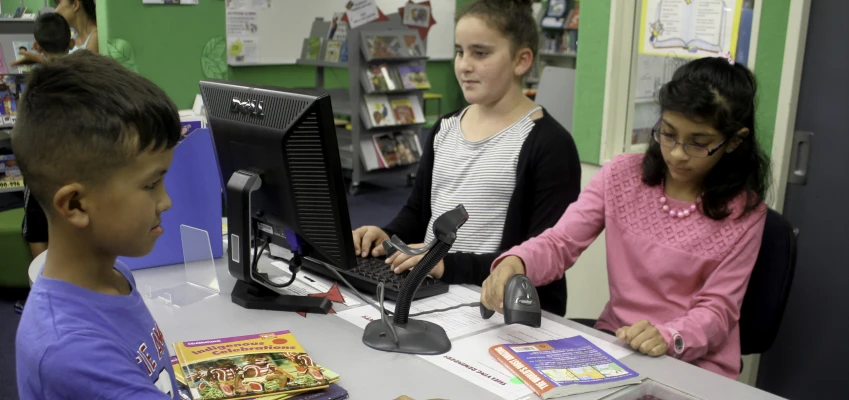
Understanding school libraries
Find out what makes an effective school library, and why it matters. Discover the latest thinking and research about the role of the library in teaching and learning.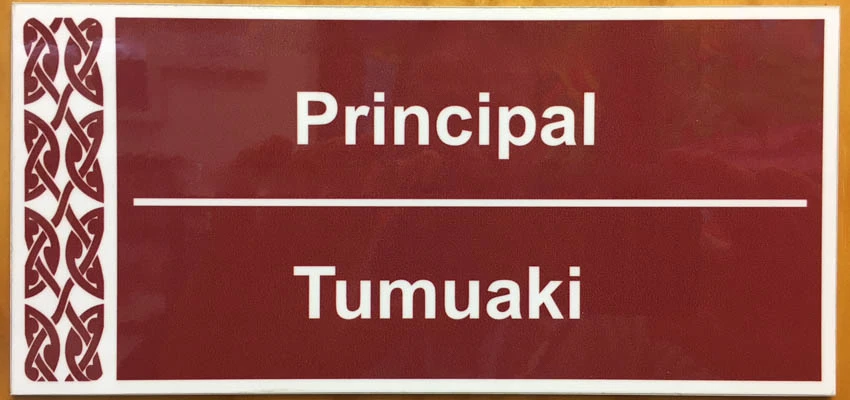
Leading your school library
Strong leadership from the principal and library team is critical to the success of your library as a learning centre within the school. To be effective, your library's vision and practice must align with the school's learning goals.